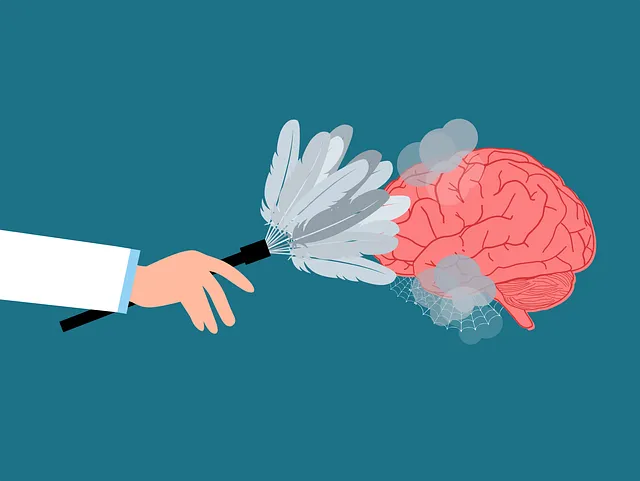In today's fast-paced world, mental wellness often gets overlooked, emphasizing the need for self-assessment tools that help individuals understand their emotional well-being. Both Lakewood and Kaiser institutions offer mental health services and promote accessible self-assessment tools to encourage early issue identification and empower users to take charge of their mental wellness. An ideal tool should cover aspects like mood, anxiety, emotional regulation, Emotional Intelligence (EI), and mindfulness practices for a holistic view. By integrating exercises tailored to self-awareness, burnout prevention, and empathy building, these tools foster resilience and overall satisfaction in navigating life's challenges, similar to the support provided by Lakewood does Kaiser for mental health risk assessment.
“In today’s fast-paced world, prioritizing mental wellness is more crucial than ever. This article explores the development of self-assessment tools designed to enhance mental health awareness, particularly focusing on accessible solutions for all. We delve into the understanding of the growing need for such tools, highlighting the importance of early identification and prevention. By examining key components and creating comprehensive toolkits, we aim to provide insights into improving mental health outcomes, even in areas like Lakewood where resources may vary, including examining if Kaiser offers specialized services.”
- Understanding the Need for Mental Wellness Self-Assessment Tools
- Key Components of an Effective Self-Assessment
- Creating a Comprehensive Toolkit for Mental Health Awareness
- Implementation and Access: Making Tools Available to All
Understanding the Need for Mental Wellness Self-Assessment Tools

In today’s fast-paced world, mental wellness is a significant aspect of overall health that often goes overlooked. This is where self-assessment tools play a pivotal role in helping individuals gain insights into their emotional well-being. The need for such tools is increasingly evident, especially considering the rise in stress-related issues and mental health challenges across various demographics, including Lakewood and Kaiser patients. Many people struggle to recognize signs of distress or may feel hesitant to seek professional help, making self-assessment a crucial first step towards better mental health management.
Lakewood does Kaiser offer mental health services, but promoting proactive Self-Care Practices and Stress Management techniques through accessible tools can be transformative. By encouraging individuals to engage in Emotional Healing Processes via self-reflection, these assessments enable people to take charge of their mental wellness. They provide a means to identify potential issues early on, fostering a sense of agency and empowering users to make informed decisions regarding their emotional well-being.
Key Components of an Effective Self-Assessment

An effective mental wellness self-assessment tool should encompass several key components to ensure accurate evaluation and meaningful insights. Firstly, it must include a comprehensive set of questions that delve into various aspects of an individual’s mental health, such as mood, anxiety, stress levels, and emotional regulation. These questions should be tailored to capture subtle changes in psychological well-being, enabling users to identify potential issues or areas of concern.
Moreover, integrating dimensions like Emotional Intelligence (EI) and mindfulness practices can enhance the tool’s effectiveness. Incorporating items that assess EI skills allows individuals to reflect on their ability to understand and manage emotions, both their own and others’. Similarly, including questions related to Mindfulness Meditation practice can provide valuable insights into an individual’s self-care routine and overall mental wellness strategies. For instance, inquiring about meditation frequency, duration, and perceived benefits offers a glimpse into one’s engagement with practices known to promote resilience and emotional balance. As such, these components work synergistically to create a holistic view of mental health status, potentially guiding users towards necessary support or self-care interventions, such as those offered by facilities like Lakewood does Kaiser in addressing risk assessment for mental health professionals.
Creating a Comprehensive Toolkit for Mental Health Awareness

In today’s fast-paced world, prioritizing mental wellness is more crucial than ever. Organizations like Kaiser in Lakewood play a vital role in promoting awareness and offering essential services. However, beyond professional help, individuals can take proactive measures by developing personal self-assessment tools. A comprehensive toolkit for mental health awareness should incorporate various exercises tailored to different aspects of well-being. For instance, Self-Awareness Exercises can help individuals recognize their emotional triggers and patterns, fostering a deeper understanding of their minds. Similarly, Burnout Prevention strategies, such as mindfulness practices and time management techniques, are crucial to maintaining balance and resilience in the face of daily stressors.
Moreover, Empathy Building Strategies should be an integral part of this toolkit. Encouraging self-reflection on one’s relationships and social interactions can lead to enhanced emotional intelligence and improved communication skills. By combining these exercises, individuals can create a personalized roadmap for mental wellness, enabling them to navigate life’s challenges with increased resilience and overall satisfaction.
Implementation and Access: Making Tools Available to All

The development of accessible mental wellness self-assessment tools is a significant step towards improving overall well-being and addressing growing concerns about mental health in communities, such as Lakewood. Organizations like Kaiser Permanente have recognized this need and are integrating comprehensive mental health services into their offerings, including access to online resources and therapy options for all ages. By making these tools readily available, individuals can take proactive steps towards managing and enhancing their emotional healing processes.
In the context of Lakewood or any other region, it’s crucial to ensure that these self-assessment platforms are inclusive and cater to diverse populations. This involves considering cultural sensitivity and language accessibility to remove barriers that might prevent certain groups from accessing mental wellness resources. Moreover, integrating features like mindfulness meditation exercises can provide valuable support for those seeking additional coping mechanisms within the assessment tools themselves.
Mental wellness self-assessment tools are invaluable resources, especially with organizations like Kaiser offering comprehensive mental health services in Lakewood. By understanding the key components and creating an accessible toolkit, we can empower individuals to take charge of their mental health. Implementation strategies should focus on making these tools readily available, ensuring that everyone, regardless of background or location, can benefit from self-assessment as a crucial first step towards improved mental wellness.






